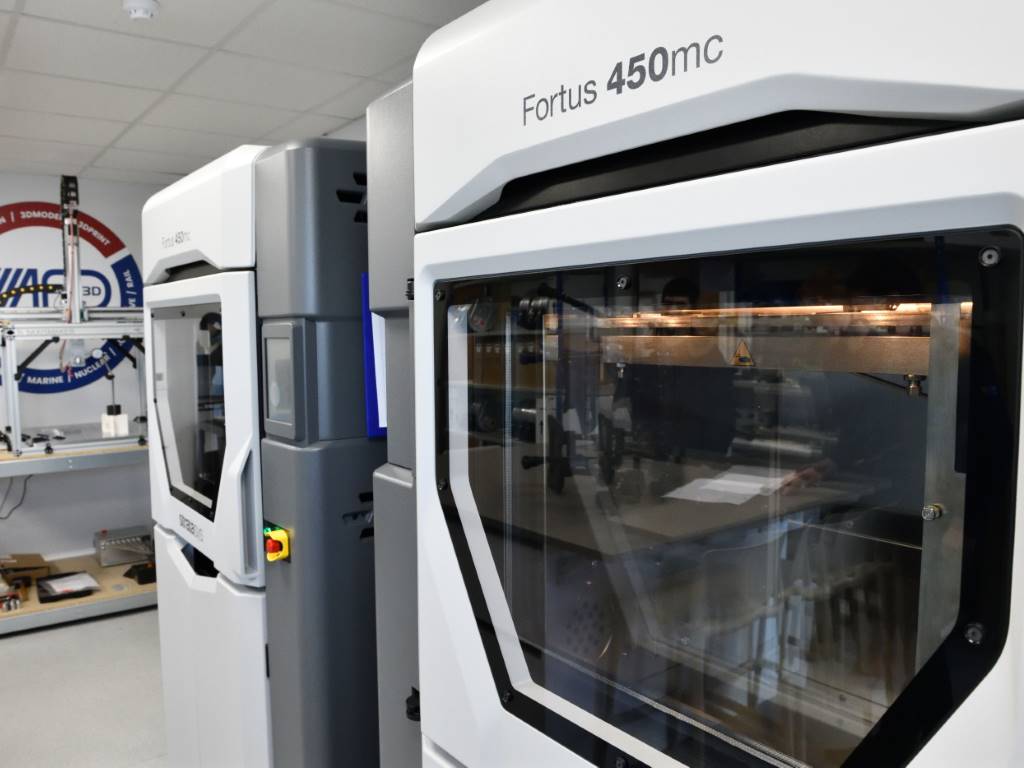UK automation: the keys to success

Fanuc UK managing director Tom Bouchier explains how the company's inaugural open house raised a number of interesting questions on the state of automation, as well as offering intriguing insights into the future of the industry.
Fanuc UK managing director Tom Bouchier explains how the company's inaugural open house raised a number of interesting questions on the state of automation, as well as offering intriguing insights into the future of the industry.
A report published by the Business, Energy and Industrial Strategy Committee (BEIS) in September 2019 highlighted the disadvantageous position of UK automation. Falling behind its G7 counterparts in terms of robot density, it claimed that Britain will struggle to keep pace with the productivity of international competitors if action is not taken.
If UK manufacturing is to realise its potential, it must overcome several barriers to automation. An eagerness to overcome these barriers formed the basis of Fanuc UK’s first ever open house event, as a way to bring key industry figures together and open a discussion on what needs to be done to move automation forward.
Awareness
A major challenge that we face as a nation is to address misconceptions surrounding robots and automation. There are a number of benefits that this type of technology can bring to businesses, and one of the major themes of the open house was to discuss how we can highlight this to industry.
Amongst the most damaging misconceptions is the belief that automation is expensive. This point of view is particularly prevalent amongst those that can feel its benefits the most, specifically SMEs that are ready to expand their business but perhaps feel they do not have the capital to do so.
We’ve seen that on the continent, and further afield in Asia, smaller businesses are more willing to adopt automation – so what is preventing that from happening here? The fact is that automation is not out of the financial reach of many UK manufacturers, and the economic gains of introducing a robot into a production line can cover the ROI in as little as 18 months.
In addition to cost, there remains a general lack of awareness over the plethora of applications that automation can be used for. With benefits for a whole host of industries, such as automotive, aerospace, food and beverage, pharmaceutical, and medical, there are a wide range of businesses which could enjoy significant growth in output by adopting automation.
Plus, advances in collaborative robots, or cobots, add another tool to a manufacturer’s armoury. As success stories and positive experiences start to build a bank of examples to draw upon, the hope is that more businesses see the impact automation could have on the way they operate.
The way we, as an industry, educate the end user on the benefits of automation is crucial. Business owners are understandably protective of their company and no one is interested in being lectured on how they could be improved. Communication is key to establishing what is required, and a thorough User Requirement Specification (URS) would ideally be created prior to the introduction of automation.

Education is key
Day one of the open house looked at the importance of skills and training, featuring a keynote speech from Ben Blackledge, deputy CEO at WorldSkills. A panel discussion focused on how we need to upskill those already working in manufacturing, as well as provide pathways for those seeking to enter the industry. The most effective way to secure the future of UK businesses is to provide a stream of enthusiastic and automation-literate employees, capable of engaging with the latest technology.
However, there has to be a concerted effort to engage young people. The best way to do this is to continue to provide strong apprenticeship programmes. We must also ensure that apprentices become ambassadors to those still in education, as the message of encouraging the next generation of engineers will resonate more effectively coming from identifiable role models.
The key is to take a non-partisan approach to this, because the health of UK industry is too important to be politicised. We must look at how funding can be used to foster growth – for example tax breaks could go to OEMs to enable them to improve training and prioritise apprenticeships.
It is also important that organisations, such as WorldSkills, continue to inspire young people and develop their skills. It raises awareness over the need to address growing skills gaps, which we can see all too clearly in UK manufacturing.
Fanuc’s ongoing partnership with WorldSkills is part of its commitment to raise awareness of automation, and by equipping apprentices with the competencies and knowledge to take into the future, British businesses can continue to compete on a world stage.
Altering perceptions
The second day continued the theme of looking at perceptions of automation and robots, touching upon how addressing misconceptions should not be limited to the manufacturing industry – it is something that needs looking at on a much wider scale.
Resistance to automation can largely be attributed to the distrust of robots that is inherent within British society. The pervasiveness of this mindset should not be underestimated, and everyday features as prevalent as ‘I am not a robot’ buttons on websites are indicative of the negative attitudes towards robotic technology.
By educating wider society on the benefits of automation, as well as those within manufacturing, we can break down some of the barriers to robotics by removing the stigma associated with the word. Rather than fighting against the introduction of modern technology, Britain should be pioneering automation, and changes to attitudes will help make this possible.
Ultimately, automation drives productivity, and should not be viewed as a risk to jobs. Failure to automate is a failure to increase productivity, which ultimately poses a much more real threat to UK businesses.

Collaboration
A major theme of the open house event as a whole was collaboration and inclusivity. Encouraging people to talk about automation is a great start, but to foster inclusion within technologies is something which is beneficial to UK industry as a whole.
The Industrial Internet of Things (IIoT), or Industry 4.0, refers to the networking of devices for the purpose of interaction and data exchange, and will continue to be a major trend in 2020.
On day three, Craig Taylor, European technical support manager at Fanuc Europe, spoke about Fanuc’s own IIoT platform. Known as the FIELD system, which stands for Fanuc Intelligent Edge Link and Drive, it is great for breaking down barriers to automation within production facilities, as it enables seamless communication between various machines and robots of different generations and manufacturers.
Open platform technology can play a major role in encouraging a wider adoption of automation, and it is an exciting prospect for the year ahead.
This type of open communication can actually be applied to the way UK industry liaises with government. Many, myself included, frequently call on the Government to be more decisive in leading the transition to new technologies, and to provide a platform upon which British businesses can grow. But a certain degree of responsibility lies with experts to support the Government, by providing a crucial base of industry-specific knowledge to support their efforts to influence a change in attitudes.
Closing thoughts
Evidently, there is room for improvement in the UK when it comes to adopting automation into manufacturing, and the UK’s low robot density compared with our G7 counterparts is worrying. However, Fanuc UK’s open house event showed there is sufficient appetite for progress and technological advancement to be optimistic that 2020 will be a pivotal year for British businesses.
Addressing misconceptions and tackling barriers to automation with a positive mindset is the key to improving productivity in UK industry, and by generating awareness and offering training, there is no reason to believe that the year ahead will be anything but successful.
Fanuc UK www.fanuc.eu/uk/en












